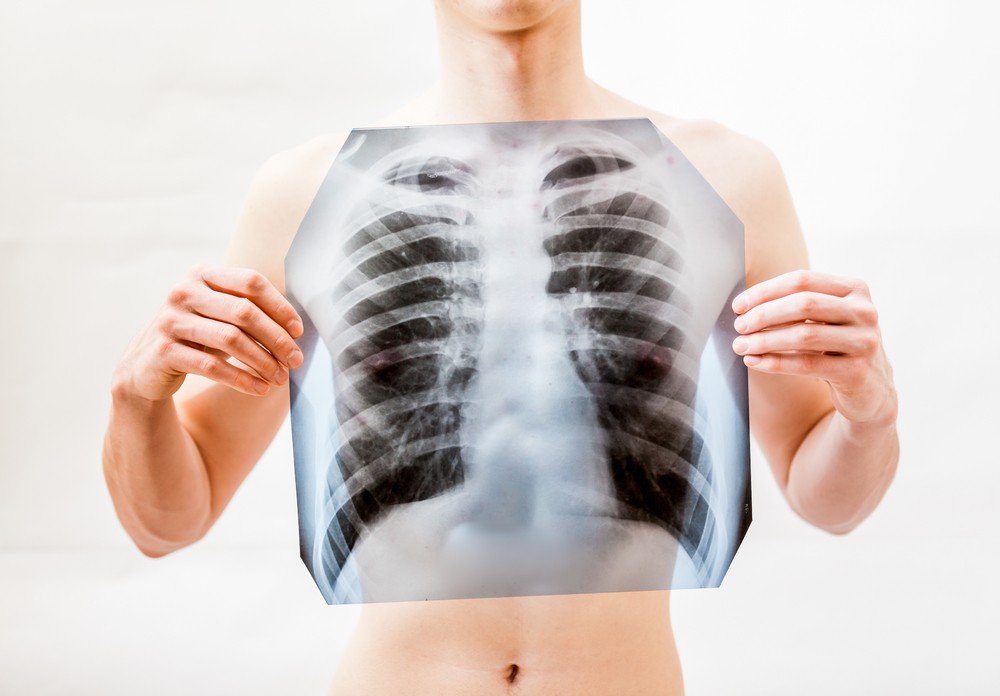Popular Reads
Top Results
Can't find what you're looking for?
View all search resultsPopular Reads
Top Results
Can't find what you're looking for?
View all search results9 signs of lung cancer not to ignore
Here are some warning signs of lung cancer not to ignore.
Change text size
Gift Premium Articles
to Anyone
L
ung cancer is a silent and deadly disease. It has the highest death rate among all types of cancer, with 1.59 million deaths occurring in 2012, according to a World Health Organization report.
One reason for the high figure is because it is hard to diagnose lung cancer in its early stages. In approximately 40 percent of people diagnosed with lung cancer, diagnosis is made after the disease has advanced. In one-third of those diagnosed, the cancer has reached stage 3.
Here are some warning signs of lung cancer not to be ignored:
Cough that can’t be treated
It is quiet common to cough. You can cough because of a cold or from food going the wrong way. However, if the coughing doesn’t stop after the cold is gone or doesn’t get better with medication, you should see a doctor to check your lungs.
Change in your cough
Chronic cough is often a symptom of other conditions such as GERD, asthma or hay fever. However, if the nature of the cough changes (such as from dry cough to coughing up mucus or blood) it is time to see a doctor.
Shortness of breath after normal activities
If you often have shortness of breath or have a whistling sound when you breathe, these might be symptoms of lung cancer. Difficulty in breathing may be caused by a tumor blocking your airway or the fluid around the lungs increasing, thus pressing on your lungs. Because it is normal to be out of breath, we often ignore it. But when you cannot breathe doing normal activities, such as after climbing stairs, bringing in groceries or performing another task that you could previously do without finding it hard to breathe, see your doctor for medical attention.
Chest pain
While lung cancer that develops in the center of the lungs doesn’t cause pain, a specific type of lung cancer that occurs in the outer parts of the lungs and chest wall can. Lung cancer may produce pain in the chest, shoulder or back area. When lung cancer causes chest pain, the discomfort may result from enlarged lymph nodes or metastasis to the chest wall, pleura (lining around the lungs) or the ribs.
(Read also: Talc powder and ovarian cancer: Is there a connection?)
Wheezing
Wheezing is a whistling sound that your lungs make when they are constricted, blocked or inflamed. Wheezing can be a sign of many different health conditions, such as allergies and asthma. Don’t ignore it! If your wheezing does not get better, you should let your doctor know right away. It is better to know what it is than to assume it is nothing.
Voice changes
The voice often gets hoarse after a cold or after a long period of no usage, such as when you wake up in the morning. But if you hear changes or if someone points out changes in your voice, if your voice gets deeper, hoarse or raspier, get checked out by a doctor. If your hoarseness doesn’t get better after two weeks with medication, it is a good idea to see a doctor. Lung cancer might have affected your voice box, thus causing changes in your voice.
Weight loss
Rapid weight loss is never a good sign. People with lung cancer often experience weight loss over a short amount of time because the cancer cells are using all the energy and nutrition. Don’t’ ignore changes in your weight, especially if it occurs when you don’t make any changes to your diet and lifestyle as it may be a clue to a change in your health.
Bone pain
Advanced lung cancer can cause bone pain. Most people with bone cancer are older people so they might write off bone pain as a sign of getting old. Bone pain from lung cancer is often present in the back or in the shoulder, arm or neck, although this is less common. Lung cancer pain often gets worse when you rest and during the night. Pain is never a good sign to ignore in any area of your body and should be checked as soon as possible.
Headache that won’t go away
The most dangerous pain you can have from lung cancer is a headache. This may indicate that the cancer has spread (metastasized) from your lungs to your brain. In some cases, lung cancer can cause headaches because the tumor is pressing on nerves that run through the chest area. This pressure can trigger headaches. If you have a headache that cannot be relieved you should let your doctor know right away.
There are also other signs and symptoms that might indicate lung cancer, such as a fever, fatigue, difficulty eating or swallowing, lack of appetite or unusual lumps on your body.
It is important to let your doctor know of any changes in your health. If you have a family history of lung cancer or are a smoker, you might want to get a routine checkup and screening. Early diagnosis can make all the difference in lung cancer survival. (kes)












